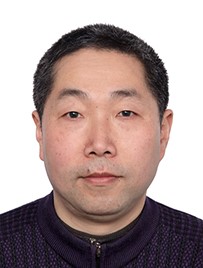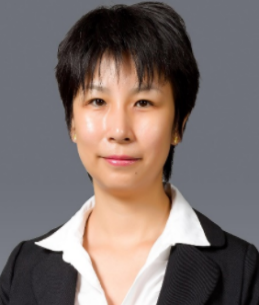Course Enrollment: The Inaugural Chief Data Officer Training Course

 April 16, 2019
April 16, 2019
Course Introduction
As the IT era becomes the era of data, an ever-growing amount of data is collected, analyzed, processed and ultimately transformed into a key corporate asset. China is the world’s top data producer and data market. At the intersection of online data and data trading platforms, Chinese companies have accumulated large amounts of data and have developed different technologies for data management and processing, which presents certain risks – especially as there are constant developments in the relevant laws and regulations and also technological advances. On May 1, 2018 China’s Information Technology – Personal Information Security Regulation came into effect, establishing a primarily standard for protection of personal information and guiding enterprising in their collection, usage, sharing, transfers and disclosures of personal data.
As Chinese enterprises “Go Out” -under various initiatives such as the Belt and Road- and become global players, they need to ensure compliance with international standards and regulations. On May 25, 2018, the EU General Data Protection Regulation ("GDPR") came into effect and has become known as the most stringent data protection act in EU history. The Regulation is the law of the 28 EU member states, however its significance transcends the EU – its jurisdiction extends to data processed outside of the EU, making it imperative for every entity and individual with EU activities to study the significance of the Regulation to ensure protection of their own data, as well as legal use of other data. The companies that are most affected by GDPR includes but is not limited to those that hold and process large amounts of consumer data: technology companies, data controllers, data analysts, data service providers and marketers, and data brokers associate. The global business scope of such entities makes the jurisdictional reach of the GDPR practically global.
"Enterprise Data Governance" is a new management concept, and the reason why the position of why Chief Data Officers (CDO) are becoming a key element in enterprise management. The trend is that the internal control policies and mechanisms of MNCs for privacy protection become unified – companies such as Apple and Facebook have begun to implement the provisions of GDPR globally. The course will cover key issues such as the significance of GDPR and its application in practice, solutions for situations when GDPR is in conflict with privacy regulations of foreign jurisdictions, as well as data analysis and sharing be carried out in accordance with the transitional period when the Personal Information Protection Law will be promulgated in the near future in China?
The CDO course has invited an authoritative EU Data Protection Policy Team of experts, to interpret the EU Data Protection Law in depth, and will be the first time that this content will be presented in China from perspective of law and technology.
This an up-to-date practice-focused course for information technology managers, information security managers, personal privacy protection managers and technicians, corporate legal counsel, third-party evaluation organizations, researchers and technical managers concerned with personal information security standards. The lectures are going to introduce the relevant key concepts and then dig deeper into the practical considerations of the content across six modules, i.e. "Privacy", "Cross-border Data Flows", "Network Security", "Competition and Finance", "Financial Science and Technology and Blockchain", "Data Protection Management and Compliance". Practical solutions will be presented and discussed, empowering management team members to navigate the complex field of data protection and compliance and ensuring sustainable corporate growth.
Course Schedule:
April 16 – 21, 2019
Target Audience:
※Founders and Executives of Fintech Companies
※Enterprise Data Officers and IT Managers
※Investors, Researchers, Risk Control Experts, Engineers and other Fintech Professionals
※Representatives of Institutions with connections with the Fintech Field, e.g. VC, Investment Banks, Trusts, Funds and other relevant entities
※Representatives of Industry Associations, Consultants, and other relevant Service Providers
※Other Professionals interested in understanding the Financial Data Industry
Lecturer Bios

Sophie Stalla-Bourdillon
Professor Sophie Stalla-Bourdillon is a Professor in Information Technology Law and Data Governance within the Law School at the University of Southampton and Senior Privacy Counsel and Legal Engineer at Immuta. She is a (non-ex) Director of the Web Science Institute and a member of the Southampton Cybersecurity Centre of Excellence.
Sophie is the author of several legal articles, book chapters and books on intermediary liability, data protection and privacy, information security and intellectual property. She has been researching and writing on the liability of Internet intermediaries such as Internet service providers, Web 2.0 platforms, search engines, on the legal implications of deep packet inspection practices implemented by Internet service providers, on the role of hosting providers in relation to malicious web-pages, on the standardization of privacy policies and on anonymization practices.
She is extensively involved in diverse research and consulting activities. She led the legal work conducted for the FP7 research project on operational trustworthiness enabling technologies (FP7 OPTET) examining the implications of a trustworthiness-by-design approach to be applied from the design phase and comparing it with other value-by-design approaches such as the data-protection-by-design approach supported by the General Data Protection Regulation. She also worked on the legal implications of data enrichment practices for the Ordnance Survey Data Enrichment Project and contributed to produce a set of recommendations to make Ordnance Survey’s business model adapt to the digital age. She is now exploring data situation models for a 3-year research project on anonymization practices as well as the implication of the data-protection-by-design approach for electronic identification for the Horizon 2020 FutureTrust research project on interoperability, electronic identification and trust services and supporting data sharing practices for innovation acceleration for the Horizon 2020 innovation programme Data Pitch.
Sophie has acted as an expert for the Organization for the Cooperation and Security in Europe (in the field of intermediary liability) and for the Organization for Economic Development and Cooperation (in the field of data protection, research data and anonymization). She was part of the expert group formed by the Council of Europe on intermediary liability MSI-NET (2016-2018).
She is Associate Editor of the Computer Law and Security Review, a leading international journal of technology law and practice providing a major platform for publication within the field of IT law and computer security.

Hedvig Schmidt
Dr Hedvig Schmidt is Associate Professor in EU Law within Southampton Law School at the University of Southampton
Hedvig graduated from Copenhagen Business School with a BSc Business Administration and Commercial Law in 2000, she subsequently studied for an LLM in European Union Law at University of Essex, where she graduated with a distinction in April 2002. During her studies for a PhD in Law also at University of Essex (2008), Hedvig worked as a research assistant at the Law School working on various projects including a project with Prof Steve Anderman consulting Singapore IP Academy on how to advise the Singaporean government on the design of its future competition law. In 2004-2005 Hedvig was a Junior Research Fellow at the British Institute of International and Comparative Law in London. Here she was involved in a research project on the modernisation of Article 102TFEU and the organisation of "Expert Competition Law Workshop for National Judges" BIICL,March 2005, Fondation Universitaire, Brussels a project of educating national judges in competition law funded by the European Union.
In 2005, Hedvig became a lecturer in EU Law at University of Southampton, promoted in 2012 to Associate Professor in EU Law. She has written extensively on competition law (both US and EU) and in particular on the interface between competition law and intellectual property rights.
She is the co-author of the well-known textbook “Competition Law and Intellectual Property Rights, the Regulation of Innovation” 2nd edition, with Prof. Steve Anderman, Oxford University Press, 2011 and also “Competition Law, Innovation and Antitrust: An Analysis of Tying and Technological Integration” Edward Elgar 2009.
Her recent research projects revolve around market power of companies in competition law and look at competition law from different jurisdictions to assess market power anew and attempt to identify a more appropriate legal definition which can provide greater legal certainty. As part of this project Hedvig have explored the role of market power in the digital economy in the forthcoming chapter ‘Taming the Shrew: Is there a need for a new Market Power Definition for the Digital Economy’ in Gal and Lundqvist (ed.) Competition Law for the Digital Economy, Edward Elgar.

Vladimiro Sassone
Professor Vladimiro Sassone has worked at the University of Southampton since 2006, where he is the Roke/Royal Academy of Engineering Research Chair in Cyber Security, the Head of the Cyber Security Group, the Director of the GCHQ/EPSRC Academic Centre of Excellence for Cyber Security Research (ACE-CSR), the Director of the Cyber Security Academy (CSA), a partnership between the University, Industry and Government to advance Cyber Security through excellence in research and teaching, industrial expertise and training capacity.
A theoretical computer scientist by formation, Professor Sassone turned to cyber security in 2001. His recent research include resource access control over untrusted networks, trust management systems, predictive trust-and-reputationmodels, anonymity and privacy in the presence of trust and attackers’ belief systems. He originated the notions of trust structures and the information-theoretic measure of vulnerability with beliefs. He was the first to use hidden Markov models in trust-and-reputation systems, and the first to use game theory to design, understand and analyse collaboration mechanisms in anonymity networks like Tor. His externally funded research currently focusses on cloud security, data anonymisation, cyber security controls and the security of the internet-of-things and of smart contracts on distributed ledgers technologies.
Professor Sassone has been the Head of Department of Informatics at the University of Sussex, Director of the ECS Graduate School at Southampton, and has been leading on cyber security in Southampton since 2012. He has chaired for seven years the ETAPS Steering Committee. He is President of the European Association for Theory and Practice, and has been elected member of the Academia Europaea, and of the Council of the European Association for Theoretical Computer Science continuously since 2003. He was among the founders of the symposium ‘Trustworthy Global Computing,’ the BCS conference ‘Visions of Computing,’ the ETAPS conference ‘Principles of Security and Trust,’ and the ‘Southampton CyberCrime Symposium.’
He collaborates with and consults for branches of Government and regulatory bodies, including the Foreign and Commonwealth Office, The Cabinet Office, GCHQ/CESG, NCA, ROCUs, Hampshire Police, FCA and Bank of England. He is the UK representative on the IFIP Technical Committee TC1, Foundations of Computer Science. Professor Sassone is the editor-in-chief of ACM Selected Readings and of Springer’s ARCoSS, Advanced Research in Computing and Software Science. He is editor of Theoretical Computer Science, Logical Methods in Computer Science, Electronic Proc. in Theoretical Computer Science and, until recently, of The Computer Journal.

Andrea Margheri
Dr Andrea Margheri is a Senior research fellow in the Cyber Security group and Research manager of the Cyber Security Academy at the University of Southampton. He is Technology Fellow of the UK Cabinet Office for the exploitation of blockchain technology for Public services.
His research covers foundational security of modern software-intensive distributed systems. His current research primarily addresses blockchain technology with particular emphasis on new solutions to improve its performance and scalability properties. These research outcomes are currently applied in real-world contexts such as software platforms for federating multiple Cloud computing systems, trustworthy provenance of eHealth data, and autonomous orchestration of smart-energy IoT systems.

Henry Pearce
Professor Henry Pearce, Lecturer in Law at University of Portsmouth. Prior to his undergraduate degree Prof. Pearce worked full-time for a professional surveillance and investigations firm for two years; during which he was responsible for preparing evidential material that would later be used in court proceedings. He completed his LLB at the University of Reading, where he developed an interest in the relationship between law and information technology. He then completed an LLM in Regulation and Technology at King's College, London, which focused on the regulation of telecommunications, cyberspace and the media. He started his PhD at the University of Southampton, and joined the Institute for Law and the Web, in December 2012

Wu Yue
Professor, Vice Dean, SJTU School of Cyber Science and Engineering;
Deputy director of the joint research laboratory on Security and Trust between Telecom Paris Tech and Shanghai Jiaotong University;
SJTU Security and Trust Laboratory Vice Director, holds M.S. and Ph.D. degrees from the Department of Radio Engineering, Southeast University, Nanjing, China, Telecom ParisTech and Technische Universitaet München Visiting Researcher.
Prof. Wu has presided over the key projects such as the National Key Research and Development Program “Network Space Security”, the National Natural Science Foundation of China – the French National Scientific Research Center International Cooperation and Exchange Project, the Sino-French International Cooperation and Exchange Project “Xu Guangqi 2016”, the National 863 Program and the National Natural Science Foundation. In 2007, he was selected for the Shanghai Talent Development Funding Program. In recent years, his research has focused on mobile Internet security research. Prof. Wu has published more than 50 academic papers in key international academic journals and has presented at numerous international conferences. He has applied for two US patents and 11 national patents in China, obtaining 7 authorized patents, 1 license, 2 patents. Prof. Wu won the first prize of 2017 Shanghai Teaching Achievements.

Xu Duoqi
Xu Duoqi, Professor of Fudan University Law School, Affiliated Professor of SAIF, Ph.D Advisor, Dawn Scholar of Shanghai, one of Ten Young Jurists of Shanghai in 2012. Professor Xu was a senior visiting Scholar of Fulbright Program at Harvard University in the United States from August 2016 to July 2017, a visiting scholar of Hauser Global Program at New York University from August 2008 to September 2009, a visiting scholar at Duke University from May to July in 2013 and a visiting professor of Taiwan University from September to November in 2013. Professor Xu’s research has focused on Fintech Law, Cybersecurity, Tax and Fiscal Law, etc. Professor Xu has published over 80 papers in SSCI and CSSCI journals, including Social Sciences in China, China Legal Science, Chinese Journal of Law, The Jurist, Studies in Law and Business, Science of Law and Law Science. Professor Xu is the executive council member of China Law Association on Science and Technology, the executive council member of China Law Association on Tax and Fiscal Law, the executive vice-chairperson of the Tax Law Research Association of Shanghai Law Society, the deputy chairperson of the Financial Law Research Association of Shanghai, the deputy chairperson of the Case Law Research Association of Shanghai Law Society, the Visiting Professor of Shanghai Customs College, the academy of honor in AIIFL of the University of Hong Kong, the Commissioner of ITLA, an anonymous review expert of many SSCI and CSSCI journals. She is also a legal advisor at the CPC Pudong New District Commision, Pudong Government and China (Shanghai) Pilot Free Trade Zone Commision, a mediator at the Shanghai International Economic and Trade Arbitration Commission, and an arbitrator at the Guangzhou Finance Arbitration Commission and Zhuhai (Hengqin) Finance Arbitration Commission.

Zhang Chenguo
SJTU Koguan School of Law, Associate Professor
Holds an LLB from Tsinghua University, as well as an LLM and Doctor of Law (Dr. Jur.) Degrees from the University of Frankfurt, Germany. During her studies she was selected to participate in an exchange program in the University of Florida, where she participated in research on International Trade and Colorism. After a number of years in private practice in Jones Day in Munich, she has chaired the research project “Executive and Protection of Intellectual Property Rights in the European Union” at Max Planck Institute and has been a researcher and assistant professor in the European Union Law Center at the University of Bremen.

Matias Aranguiz
Dr. Matias Aranguiz, is a S.J.D (Ph.D in Financial Law) candidate at Shanghai Jiao Tong University, Master in Finance at Shanghai University of Finance and Economics, Bachelor at Pontifical Catholic University of Chile. He is the partner of Mantian Consulting Company and an advisor at Fintech4good now. Matias focuses on Sino-Latin American cross-border finance, green technology, fintech and social innovation.In 2018, he was the visiting lecturer “Artificial Intelligence and Global Risks” at Massachusetts Institute of Techonology.
Before joining Mantian Consulting, Matias was the Latam Investment Director at Chinainlaw Partners LLC. In Chile, he was the Chief Coordinator to the Civil Justice Reform at Ministry of Justice of Chile and a lawyer at Philippi Prietocarrizosa Ferrero DU&Uría(the biggest law firms in Latin America), as well as a advisor in several NGO in Chile.
Syllabus:
Student Benefits:
※ Obtain a certificate of successful completion, issued by SJTU
※ Become a member of the SJTU Chief Data Officer Forum.
※ Participate in industry salons, annual summit forums, investment exchanges, project roadshows and other activities.
Course Arrangements:
A six-day course, details in the enclosed syllabus.
Location:
Shanghai Jiao Tong University, 1954 Hua Shan Road, Xuhui District, Shanghai.
Certificate Specifications:
An SJTU issued certificate and addition to the non-degree alumni list of SJTU.
Tuition Fees:
Please transfer 58,000 RMB(excluding travelling expenses) to the account below after receiving the admission letter.
Account name: 上海交通大学
Bank:中国银行上海交通大学支行
Account: 436459257168
Please add an comment “Name + Chief Data Officer” to the remittance.
Steps to Apply:
※Click the link “http://cafrapply.mikecrm.com/Bd8Dixe” to apply online.
※There will be a qualification examination by the school, and qualified students will receive the admission letter.
※After the students receive the admission letter, they must transfer the tuitions to the specific account in time.
※The students should attend the courses, salons and other activities according to the arrangement by the school.
※After finishing all the courses, the school will issue a certificate.
Contacts:
※ Telephone: 021-62932518.
※ Email: cafr.apply@saif.sjtu.edu.cn.
※ Address: 12th floor, SAIF, Shanghai Jiao Tong University, 211 West Huaihai Road, Shanghai.